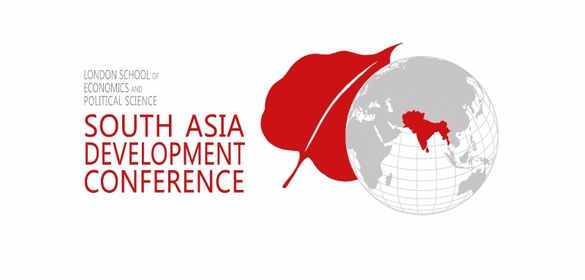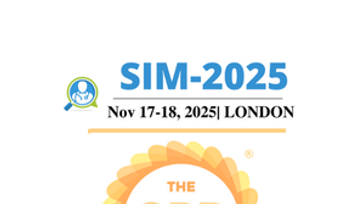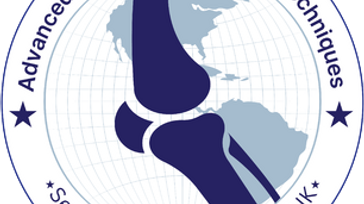
South Asia Development Conference,

-
About the event
THEME:
Conceptualised by the LSE SU South Asia Society in collaboration with the LSE South Asia Centre, the LSE South Asia Development Conference is a unique initiative which has been pioneered to serve as a forum to identify, discuss and influence the development discourse in the region. The forum employs a novel approach to blend issues of conflict as well as development issues of pressing importance in a manner that seeks to unite the region and engage participating delegates into actively contributing towards the goal of the conference.
Building on the essence of regional cooperation and globalization, it seeks to incorporate and address the challenges faced by the region as a whole as opposed to individual countries. This not only fosters a sense of unity and common purpose, but also serves as a precedent for the development of better regional cooperation, as well as facilitating the emergence of leaders with a regional, synergy driven outlook.
The summit will involve some of the most prominent voices on South Asia and promises to drive forward the developmental agenda in South Asia. Given the platform that the London School of Economics and Political Science provides and the reputation it enjoys, the debates, discussions and interactions held as a part of this conference will have a wider global reach, as well as the potential to influence political changemakers of South Asia.
OBJECTIVES
-
● Promote development as a region specific phenomenon to ensure greater cooperation between countries
-
● Identify key challenges and opportunities visavis development in South Asia
-
● Assess and advance the need for focus on development versus conflict
-
● Engage students, academics and political stakeholders in intellectually stimulating debates and
discussions
-
● Facilitate knowledge exchange among all participants of the conference
-
● Create a platform for prominent academics and political stakeholders to have a meaningful
discussion
OUTCOMES
-
● Publish the key findings of the discussion in a report with possible recommendations for governments and regional bodies
-
● Push for a studentlevel International student network that will converge on a common platform to engage in development issues in the South Asia region
-
● Develop and open a crossregional channel of communication for all development related issues between students, academics, political stakeholders and civilsociety groups.
EXPECTED DELEGATES: 450
CONFERENCE AGENDA SUMMARY
I Keynote Address by Nobel Laureate Mr. Kailash Satyarthi : “Fostering Unity in DevelopmentUniting South Asian Countries in Their Fight Against Child Abuse”
South Asia today has around 16.7 million children in Child Labour according to some conservative estimates. Cross border child trafficking is rampant across South Asia and the need for a collaborative effort has never been clearer. This calls for greater cooperation and commitment at the regional level to recognise, understand and address the reprehensible act of child labour and child trafficking. A united effort by countries to combat Child Abuse will serve as a precedent for fostering unity among countries in combating social evils and making development ‘inclusive’ in the true sense, which is the overarching theme of this conference. (see further on pg 6)
II Panel Discussion 1: South Asia’s Economic Growth From Digit To ‘Development’
As per the World Bank, South Asia remains the world’s fastest growing region. Led by robust growth in India, the region is poised to achieve a 7.3% growth rate in 2017. However, these encouraging expectations are in striking contrast to the continuing, and perhaps rising, inequality in the region. Poverty continues to thrive in the region and the human development outcomes fare extremely poorly when compared to global standards. It is therefore essential to understand if this growth can be sustained in the region and what those mechanisms are which can make this a sustainable process. (see further on pg 7)
Key Discussion Points: Has growth really improved the lives of people? Can the current growth be sustained in the long run, and what policy interventions are needed to ensure this? Can the advent of a digital economy significantly increase efficiency and what tax reforms need to complement it?
III Panel Discussion 2: Combating Climate Change in South Asia
The darkest future of all is the one painted by the destruction which a worsening climate change threatens. A report by the U.N.’s Intergovernmental Panel on Climate Change (IPCC) ranked Asia as the biggest victim of natural disasters in 2013. It accounted for as much as 30% of the global economic loss attributed to natural disasters and the effects are expected to be particularly harsh for South Asia. The challenge at hand is not just to develop a regional disaster response mechanism, but more importantly to have holistic policy frameworks that seek to minimize losses both human and economic.The effects of climate change are oblivious to any political borders and therefore any discussion on the future of South Asia cannot afford to overlook the looming threat climate change poses to the region. (see further on pg 8)
Key Discussion Points: Can the region see cooperated action in disaster mitigation and in sharing of newer technology? Will the demands for climate justice be fulfilled and can collective pressure bring this about? Should indigenous practices of conservation be revived rather than adopting newer mechanisms?
IV Panel Discussion 3: Securing the Rights of Marginalised Communities
An essential quality of a true democracy is to pay heed to the requirements of the marginalized sections of the society. In South Asia, at least 10% of the population are differently abled. Yet there seems to be a sense of apathy towards their specific needs. The LGBTQ community, for example, have not had it easy in securing their rights. In most countries they are still not accepted by the society and homosexuality is even considered an offence. The consequences of such social exclusion can be longlasting and is in violation of human rights. It is essential for all countries of the region to change their outlook and policies towards the differently abled, the LGBT community and other marginalised sections of the society to lay the foundation for an inclusive society that does not differentiate between its constituent people. (see further on pg 9)
Key Discussion Points: Why is the society and policy insensitive and apathetic towards the differently abled? What can be done to change the attitude of the population towards the LGBT community? What changes must be initiated at the policy level ?
V Shades of Nationalism a conversation between Mr. L K Advani and Mr. Ashis Ray
The history of South Asia is replete with examples of how nationalism changed the shape of the region. The role of nationalism is crucial to the idea of a nation. Leftwing nationalism typically espouses antiimperialism. It stands in contrast to rightwing nationalism, and often rejects racist nationalism and fascism. There are also many other types of nationalism which do not get the expression they need.
This session will feature noted journalist, author and columnist, Ashis Ray in conversation with veteran BJP leader and former Deputy Prime Minister of India, Mr. L K Advani. (tentative)
Why should you sponsor?
Given the global reputation of the London School of Economics and Political Science, the notable speakers and panellists taking part, large audience size, strong PR visibility and over and above everything else, the powerful agenda of the conference, sponsors are offered an exciting proposition to support a noble educational initiative while gaining valuable visibility and mileage.
Rayan ModiLSESU South Asia Society:
Envisioned to serve as a hub for students from the South Asian region consisting of Afghanistan, Pakistan, India, Nepal, Bhutan, Sri Lanka and Myanmar as well as from the rest of the world who are interested in the South Asia region, the LSE SU South Asia Society aims to create a united front that cuts across different countries, cultures, traditions, conflicts and political differences, creating a diverse group of like-minded and dynamic individuals with the ultimate aim of contributing positively to the region in various forms.
The Society not only intends to bring experienced students from the South Asia region and beyond together to discuss, debate and ideate upon development issues that plague the region but would also encourage them to work together and leverage on their LSE experience to chalk out meaningful solutions for a region which faces challenges in various forms.
With our motto of “Empower. Initiate. Lead.” we aim to create a platform for future change-makers and provide them the opportunity to implement their ideas that have the potential to bring about change in the South Asia region.
Contact the Organizer Contact the OrganizerMore Info
-
-
251-500 attendees expected
50% Male Attendees
50% Female Attendees
Contact the Organizer
Select a Package
3 available packages from £5000 to £15000
https://www.sponsormyevent.com/south-asia-development-conference-london● Name of the sponsor to be attached to the title of the event LSESU South Asia Society & (Sponsor Name) present the LSE South Asia Development Conference ● Sponsor to be thanked and acknowledged during the opening of the conference ● Sponsor representative to be given a ten minute slot during conference to interact with the audience ● Sponsor promotional video (if any and if provided) to be played during the conference ● Publicity material (if any and if provided) will be distributed to conference delegates ● Subject to Estate rules, standees and related publicity material of the sponsor may be allowed in and around the venue ● Sponsor logo to be prominently present on all publicity material online and offline ● Sponsor logo to be prominently displayed on certificates awarded (if any) and delegate kits provided (if any) ● Final conference report released will carry the name of the premier sponsor prominently
1 available
● Name of the sponsor (with logo) to be mentioned prominently alongside the conference name ● Sponsor to be thanked and acknowledged during the conference ● Sponsor representative to be given a five minute slot during conference to interact with audience ● Sponsor promotional video (if any and if provided) to be played during the conference interval ● Publicity material (if any and if provided) will be distributed to conference delegates 11 ● Subject to Estate rules, standees and related publicity material of the sponsor may be allowed in and around the venue ● Sponsor logo to be present on all publicity material online and offline ● Final conference report released will carry the name of the sponsor
1 available
● Name of the sponsor (with logo) to be mentioned alongside the Conference name ● Sponsor to be thanked and acknowledged during the conference ● Sponsor representative to be given a three minute slot during conference to interact with audience ● Publicity material (if any and if provided) will be distributed to conference delegates ● Subject to Estate rules, standees and related publicity material of the sponsor may be allowed in and around the venue ● Sponsor logo to be present on all publicity material online and offline ● Final conference report released will carry the name of the sponsor
3 available











